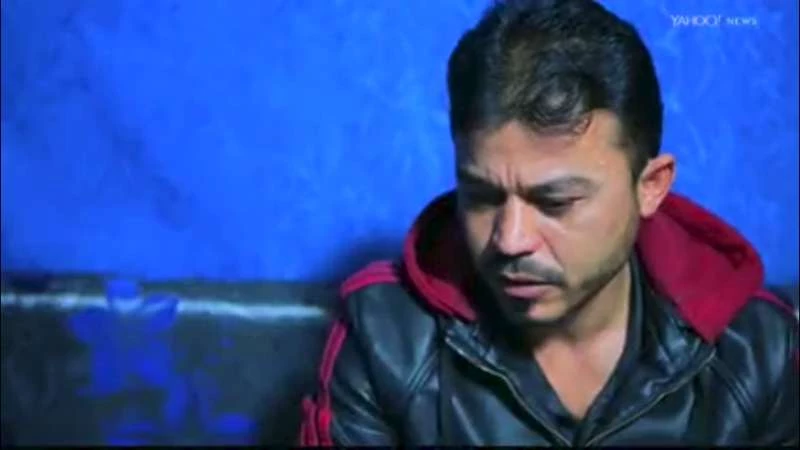That is life in Jdita, a settlement center for Syrian refugees in Lebanon’s Bekaa Valley.
“What you see now is how we live every day,” says Hana Khalaf, surrounded by a half-dozen young children, her nephews, nieces and cousins, huddled together on the tent floor. “Life is monotonous. The situation is difficult. Imagine, you never know when your tent will catch fire.”
An estimated 1.6 million Syrians are in Lebanon, where most can’t get work permits due to onerous local regulations. Many of the children in Jdita have no school to attend.
So the families wait endlessly in their tents — for something to change.
But nothing does.
Sana’ Jassem clutches a crying baby, standing by a sheet-metal-covered well and a fire crackling by a tire. She and her husband, Toufic Salem-Ali, a farmer from outside Aleppo, fled the city when the shelling started in 2013. Toufic has nothing to farm now. “Life is difficult when the man does not work,” Sana’ says, looking at her husband as he stares off into space. “Most days, one stays hungry when the man does not work.”
Moutaz Khalaf, 33, Hana’s brother, has mournful eyes as he tells the tragic story of his family. He had been a senior lawyer in the Syrian Directorate of Agriculture in Aleppo. In 2013, his mother left for a trip to Lebanon — and disappeared, taken captive by regime soldiers.
“I’ll never forget that day,” he says.
Then a friend, a fellow government employee, was arrested by Assad regime’s Air Force Intelligence. “They took him, and after 16 days, they released him as a corpse, as a result of torture and electrocution,” Khalaf says.
Later, he finally got word about his mother. She had been taken to Saydnaya Prison outside Damascus — the same notorious facility that Amnesty International, in a report last week, dubbed a “human slaughterhouse.” Between 5,000 and 13,000 detainees have been executed at Saydnaya in mass hangings authorized by senior officials of Assad regime, the report says.
Was his mother a political protester? No, Khalaf says, she was “illiterate” and had nothing to do with politics. But she was a Sunni and, he says, the regime had held her and 13 other Sunnis as hostages to force the release of 42 Alawites being held by the rebels. The plan for an exchange didn’t work out — so they executed her instead, he says.
Khalaf and the rest of the residents are afraid to return to Syria and are years away from any hope of resettlement in the United States or Europe. But still, they have been following — on their mobile phones and on televisions — the debate in the United States about President Trump’s executive order to ban all Syrian refugees from the country.
I asked Khalaf if he had a message for Trump. He does, he says. He wants him to come to Jdita.
“I



التعليقات (0)